Part III: The Future of Manufactured Home Communities (MHCs)
Editor’s Note: This is the third of a four-part series of the exclusive interview George F. Allen gave MHMSM.com Industry in Focus Reporter Matthew J. Silver.
MHMSM: What do you envision as the future of MHCs? Expanding as the boomers retire? Growing as a result of predictions made by Dr. Funk at the Roundtable last year? Or not really changing that much?
George F. Allen (GFA): I don’t expect to see the asset class change all that much. What I have seen in my experience, and what continues to this day, is consolidation. In the 1970s and 80s, the communities were individually owned. That’s why there were only 25 on that original list in 1987 and there are potentially 500 today.
In the 1980s, the first wave of consolidators was comprised mainly of syndicators. Real estate investors would get a group of doctors, say, to put up money to buy a community as limited partners under their control. Some of those portfolios exist to this day.
The second wave in the 1990s was the REIT (real estate investment trust) wave. On page 22 of the Allen Report, you can see how Equity Property Lifestyles Incorporated (ELS), which is Sam Zell’s, went from owning 28,407 homesites in 1994 to 111,000 last year.
Sun communities started out as a REIT in 1994 with 13,500 homesites, and now has 47,579, less than half the size as Sam Zell’s. In terms of overall sites, the number has basically doubled since 1994, from 88,000 to 165,000.
The third wave that started eight or nine years ago was the equity wave. Some of the portfolio guys have gone out and found deep pockets, mainly pension funds, to form new portfolios. Two of the most well-known ones have been Hometown America and Green Courte Partners.
Another ingredient in the mix was that back in the 1980s, you could have an adult section of your community, and you could have a family section. The family section was a little tougher to run. Around 1990, the government stepped in and said that was discrimination; that you could not segregate like that in one community. You can have an all-adult community or an all-family community. That was a trend, you could be all mixed, but you could not segregate.
Another trend was the beginning of professional property management. Today many properties are overseen by Certified Property Manager members of the Institute of Real Estate Management. It’s like what a CPA is to accounting, and I’m proud to be one of them. There are about 200 CPMs who claim affinity to the asset class. The most aggressive property management system is the Manufactured Housing Manager (MHM) program that I started about eight years ago to provide a one-day training certification experience for owners and operators of properties to enhance professionalism. Today there are a thousand MHMs across the United States. A third one is the ACM, Accredited Community Manager, which is controlled by the MHEI, the Manufactured Housing Educational Institute, which is an arm of MHI (Manufactured Housing Institute).
Another trend has been the growth of Recreational Vehicle (RV) sites, which have become a major part of the mix. If you look at page 22, you will see the footnote that says over half of the ELS homesites are actually RV sites, nearly 68,000 out of 112,800 in 2008.
Another trend is a whole new business model of manufactured housing sales on site, self financed. Twenty years ago, there were 20 retailers in Indianapolis who sold manufactured homes. They would routinely send their customers to the community on the side of town where they wanted to live. If they sent these buyers to community owners like me, I would spiff them with a check for $500. But that’s all changed. Now there’s only two or three retailers in Indianapolis. That’s because the chattel finance went away. Those guys can sell homes; there’s just no way to finance them. Now, the only finance guys in town are those of us who own communities with excess cash flow and are becoming the bankers. Manufactured homes, new and used, on site, are self-financed. It can be a very lucrative business. I can also send people to the bank for financing, but that’s the exception.
MHMSM: Is it necessary for HUD Code home manufacturers to survive in order for land lease communities to continue to be viable as affordable manufactured housing locations?
GFA: That’s a loaded question. The school book answer to that question is ‘of course!’ You want to think gratuitously of the segment of the industry that brought us to where we are today.
But the honest answer is, as much as I want to see them continue – in the first place, I don’t think it’s completely necessary for them to continue. And number two, I’m not too sure the decisions made today by some manufacturers are going to keep them continuing. No longer are there just mobile homes pre-1976 HUD, and manufactured homes post-1976 HUD.
My interest is in land lease communities; that’s what I write about, not manufactured home communities. There are at least four other types of homes: There’s modular homes, there’s recreational vehicles, park models, and in a few instances, stick-built homes that look like a manufactured home.
1. I could take you to areas in the country where there are two-story, huge modular homes, sitting on leased sites, mostly in high value areas like outside Washington, D.C., where it would cost so much more to own that piece of ground.
2. Then there are Park Models, no larger than 400 square feet, because above that they would have to meet HUD codes. Basically it’s a one bedroom efficiency apartment on wheels. They are also called mini-flats. There are entire properties in some Sun Belt areas that contain nothing but Park Model homes. Some people live there year round, for some it’s a second home.
3. Then there are RVs. I have some people on my property who have very large RVs. They go to Rio Grande, Texas, for the winter, and come back to Illinois for spring, summer and fall.
4. The last category is stick-built homes, and that happens only in Florida after hurricanes. It’s sometimes cheaper to build a home than to have one manufactured because they have to beef them up so much with 2 x 6 wall studs, and so on.
The point being, if you’ve got six different types of housing in these communities, there’s no point in calling them manufactured home communities. Call them what they are: they’re land lease communities. That’s what’s happening as we’re going forward; it’s a very subtle difference.
MHMSM: A fair amount of news material we cover focuses on modular housing, especially the so-called energy efficient ‘green’ homes. Do you think this will be a large part of the land lease community market in the future?
GFA: No, not in the near future. They cost so much more that it flies in the face of the affordability issue of manufactured housing and land lease communities. I think maybe it could happen in the areas around Washington, D.C. or Chicago, and people want to go with the latest fashion, like LEED or green. I don’t see it being a major issue.
Next week: the Conclusion – Part IV: Manufactured Housing Industry Change and Looking Forward
Click here to read Part I
Click here to read Part II




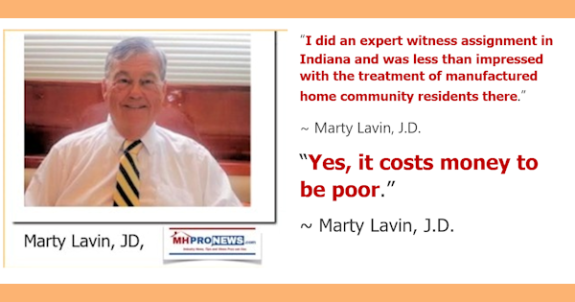
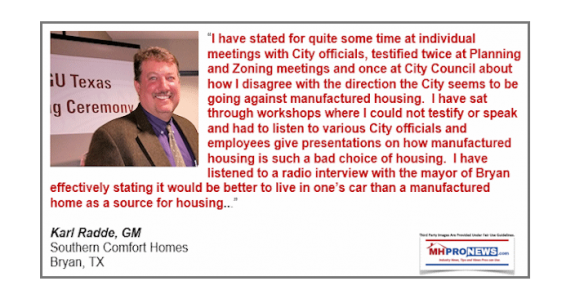
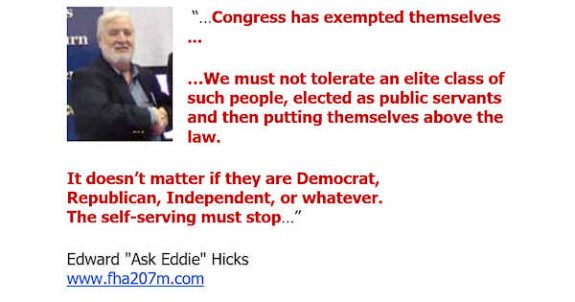
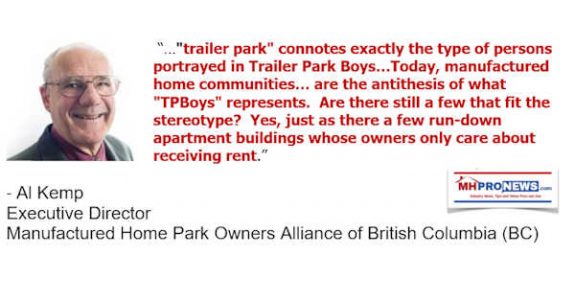
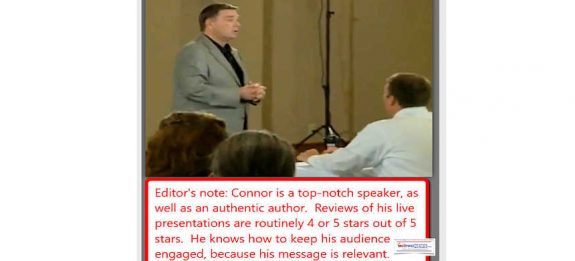
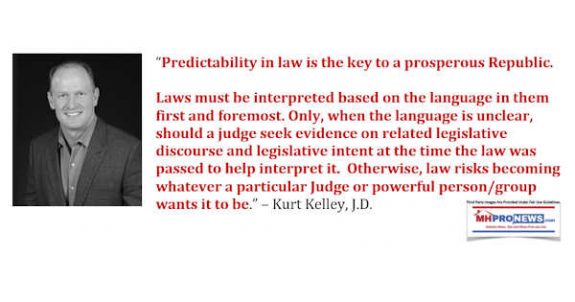
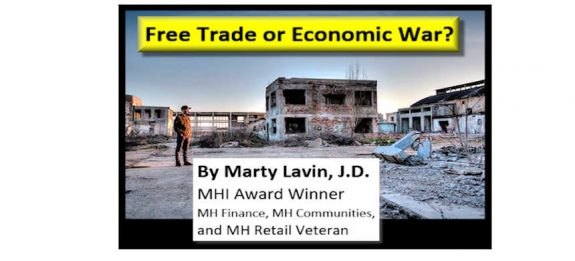
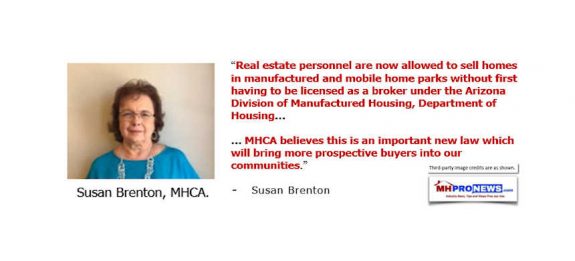
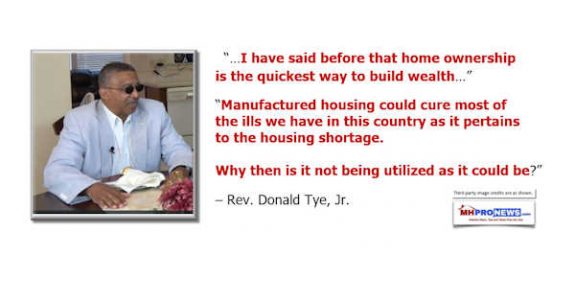
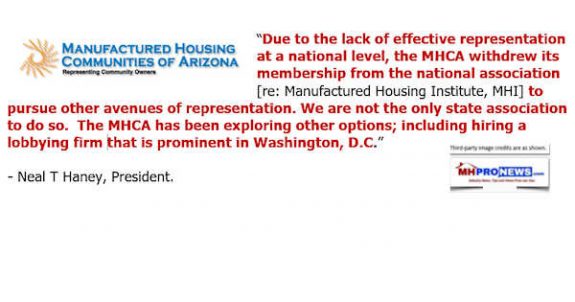
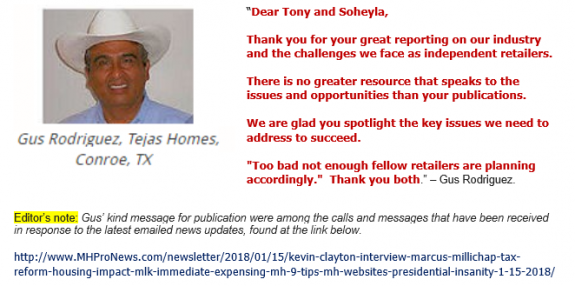
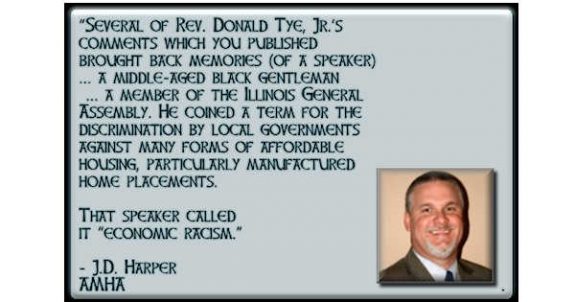
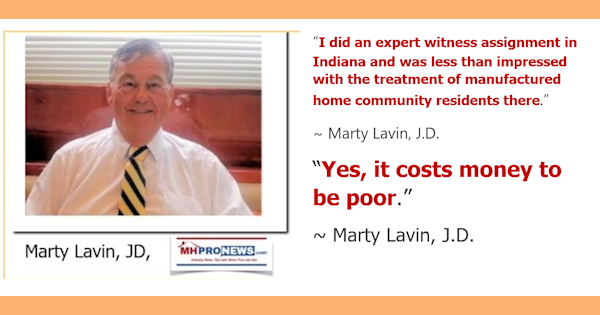
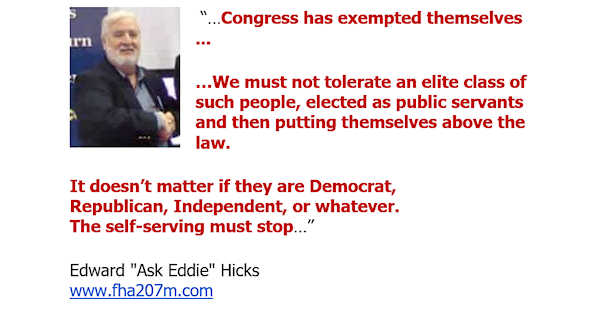
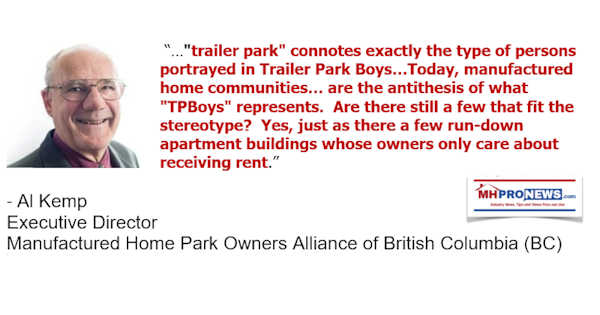
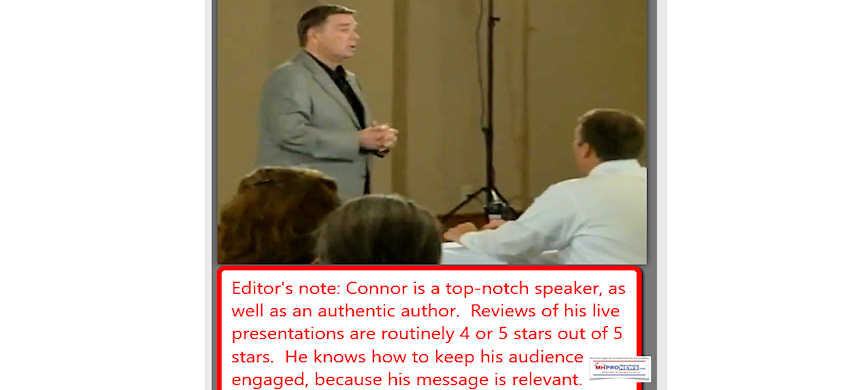
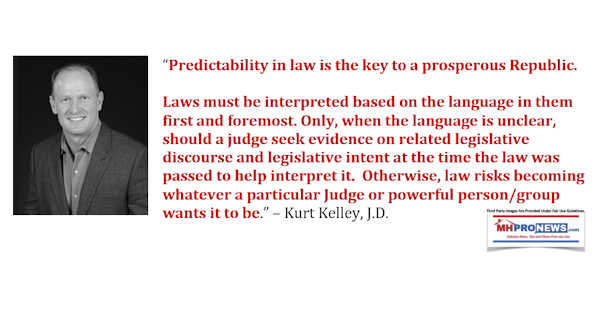
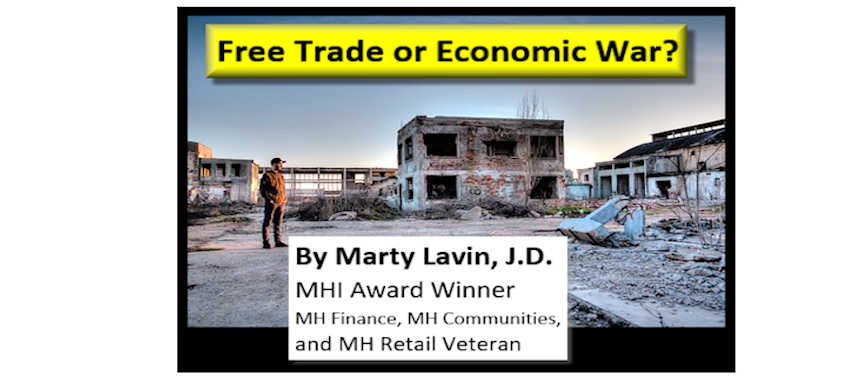
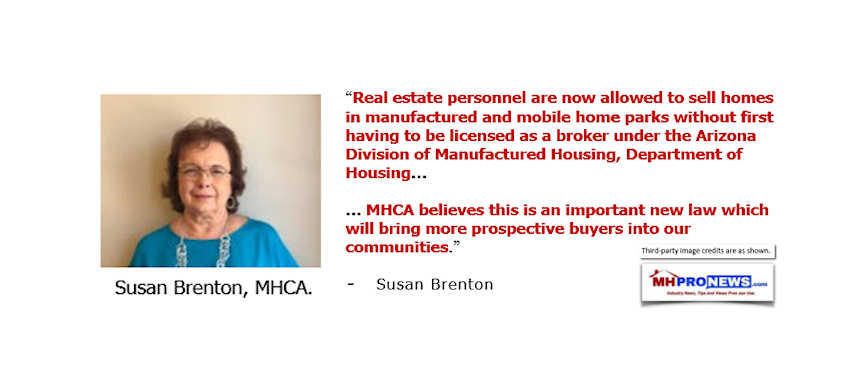
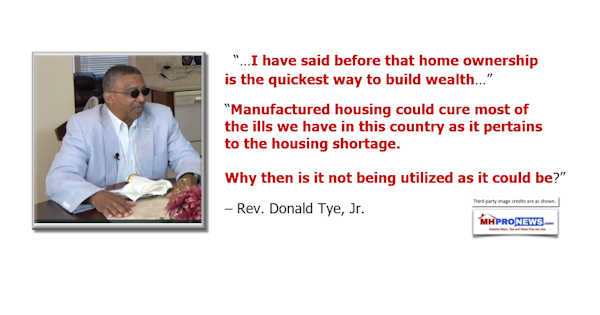
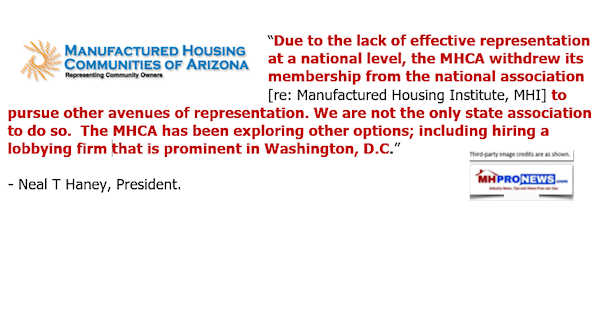
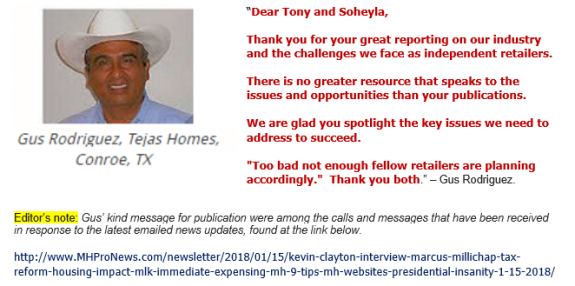
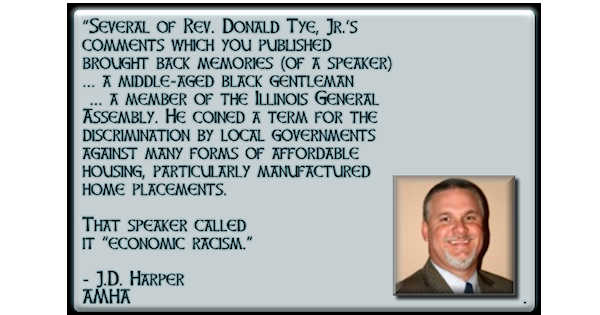
Karl Radde – TMHA, MHI, Southern Comfort Homes – Addressing Bryan City Leaders, Letter on Proposed Manufactured Home Ban
To All Concerned [Bryan City Officials, Others]: As the retail location referenced by Mr. Inderman, I would like to take a moment to address the …